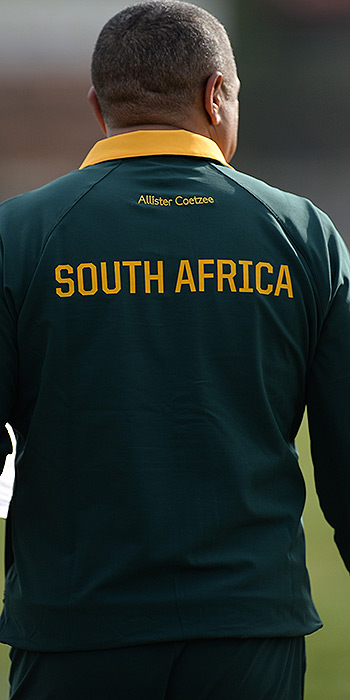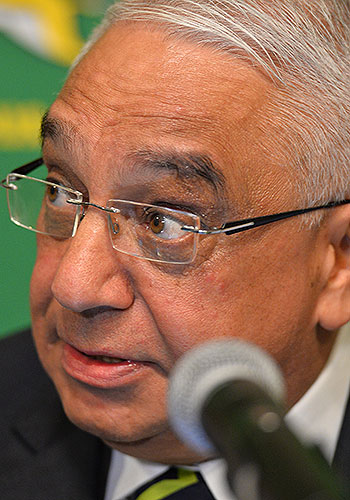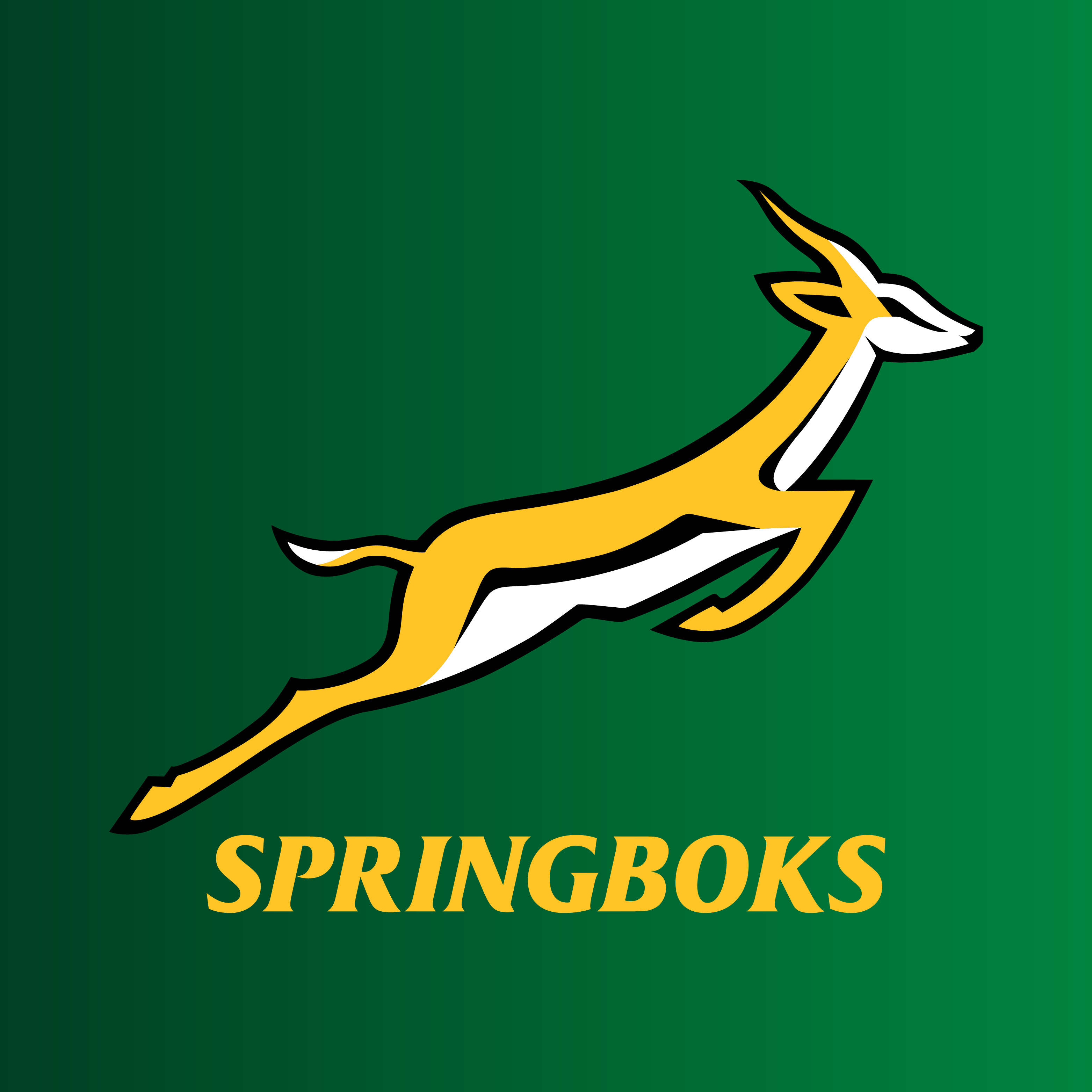Bok shake-up on the cards
Saturday's result, just South Africa's third defeat by Wales, saw the Springboks post an eighth loss in 12 Tests in 2016 – their worst record for a full season since their return from apartheid-induced isolation.
This year also saw the twice World Cup champions suffer their heaviest home loss of all time in going down 15-57 to New Zealand in Durban in October, while last week's 18-20 reverse in Florence was their first defeat by Italy.
"It has been a profoundly disappointing season in terms of results and we are acutely aware that we have failed to live up to the Springboks' proud heritage," said SARU President Mark Alexander.
"Our number one priority is a turnaround strategy for the Springbok team, and that will be looked at immediately and decisively."
This latest reverse added to the pressure on Springbok coach Allister Coetzee, who took over after last year's World Cup in England – a tournament where the Springboks finished third after suffering a shock loss to Japan in arguably rugby union's greatest upset.
Alexander warned against a "knee-jerk" reaction but also said "that if tough decisions have to be made, we will not shy away from making them."
Significantly, Alexander added the policy of letting overseas players be available for Test selection would be reviewed, with a proposal to let private investors take stakes in South Africa's Super Rugby franchises also up for debate.
There are some 300-400 South African players currently with overseas clubs.
World Cup champions New Zealand effectively refuse to select overseas-based players while England, second behind the All Blacks in the world rankings, only do so in "exceptional circumstances".
The aim in both cases is to maintain domestic standards while allowing the national coach as much access as possible to his Test match players.
Coetzee, speaking at a post-match news conference, said a shake-up was needed.
"We obviously live in a country where results are important for the national team and I am definitely not proud about the way this season has gone – it's way below what is expected of the Springbok team.
"But hopefully it's the start of a greater time and place to get SA Rugby back on track again – not fix the cracks but make sure we fix it from the core."
However, that still leaves the issue of a weak rand that makes an overseas stint so tempting for many South African players.
"I am pleased there will have to be a firm decision on what we do with our overseas-based players versus our home-based players," said Coetzee.
"You've got to weigh up more time spent with the same team, compared to a team that comes in a week before a Test.
"But we will have to be creative in some ways – it's difficult to compete against the pound and the euro – to retain players in our country," he added.
For all their problems, South Africa were within a converted try of Wales at 13-20 down with 10 minutes to go after debutant Uzair Cassiem crossed.
Wales's starting XV boasted 811 caps compared to the Springboks' mere 260.
But Wales coach Rob Howley, whose side sealed victory thanks to Justin Tipuric's 75th-minute try, backed Coetzee's decision to field a side featuring three debutants.
"Allister was positively bold in his selection by giving young players the opportunity to play international rugby – from a coach's perspective that is a really good decision because you learn from playing against world-class players," said Howley.
"At 20-13 with five minutes to go it is anyone's game.
"We were a little bit more clinical and maybe were able to get over the line because we had the experience."
The SARU statement in full:
"The president of SA Rugby outlined plans on Saturday night for an overhaul of SA Rugby administration as well as for a Springbok review process following what he admitted had been a 'profoundly disappointing' season for South African rugby.
"Mark Alexander said plans to bring governance structures more in line with the demands of professional sport were already well advanced while the immediate question of what to do about Springbok results was the organisation's No.1 priority.
"It has been a profoundly disappointing season in terms of results and we are acutely aware that we have failed to live up to the Springboks' proud heritage," said Alexander.
"We have collectively let down our supporters, our commercial partners and our broadcast partner. I would like to apologise to all our stakeholders for the disappointments we have all suffered this season.
"We are all feeling very raw and let down and it would be easy to make knee-jerk decisions. But we must resist that.
"For instance, our playing fortunes have been declining since the year-end tour of 2014 – despite a fine fightback to win a bronze medal at the Rugby World Cup – and we must coolly and coldly analyse what have been the main factors contributing to those results before determining what remedies are at our disposal to solve them.
"We will start by speaking to the coach and other team role players for their assessment and to provide our feedback. We will take feedback from forthcoming indabas and we must critically review our selection policy relating to overseas-based players.
"We've seen an unusually high number of injuries to key players this year, and we've lost many experienced Test players to overseas clubs, both of which have had major repercussions for the Springboks. We have to find ways to manage these challenges.
"But I can assure our supporters and stakeholders that if tough decisions have to be made we will not shy away from making them."
"Alexander confirmed that the planned on-field interventions would continue as scheduled. A conditioning indaba (workshop) for the national teams and Vodacom Super Rugby biokineticists would take place on 7 December.
"The coaching Indaba between the Springbok coaches and franchise coaches takes place on 12 December.
"Meanwhile, a General Council meeting on 9 December could also have a significant bearing on the future of rugby in South Africa, Alexander said.
"A number of constitutional changes are being placed before the unions for their consideration
.
"The Executive Council regards them as major and important steps to make structures more efficient and better purposed to meet the needs of professional rugby.
"Obviously their impacts will only be felt over coming months and years – rather than over days – but we believe that they will have a positive impact on the way rugby is managed."
"Alexander said the key changes planned are:
* New franchise and non-franchise rugby committees to improve communication between unions and Executive Council; to make recommendations on competitions and playing affairs; and to speed up decision making.
* Allowing third parties to take a majority shareholding in Unions' commercial arms and have a voice in running rugby through the new franchise rugby committee.
* Doubling independent representation on the Executive Council to four members plus the representative of the players
* Terminating the role of the vice-president (at the end of the current term in 2018) to bring the elected representation to six
"The Executive Council is also planning the creation of an Advisory Board of eminent individuals from business and civic society to act as a sounding board for rugby. That body would not have a constitutional role however.
"We have previewed these planned changes with our member unions and they are on the agenda for the December meeting," said Alexander.
"We trust that they will find favour to provide a structure better placed for rugby to navigate our current challenges.
"But our No 1 priority is a turnaround strategy for the Springbok team and that will be looked at immediately and decisively."
Alexander said that he would provide a further update on progress for supporters and stakeholders once key meetings in December were concluded.
Wales v South Africa full match















































